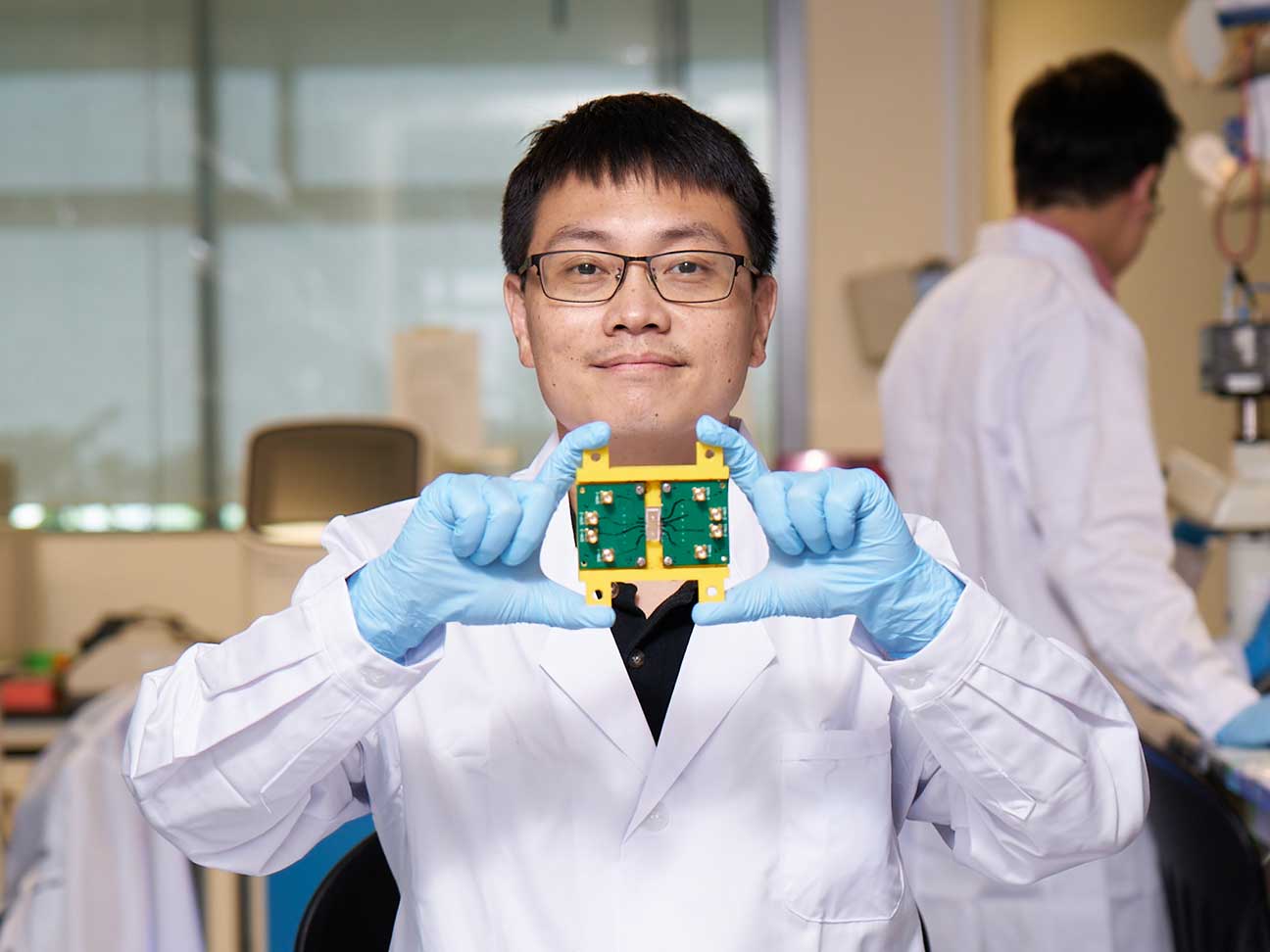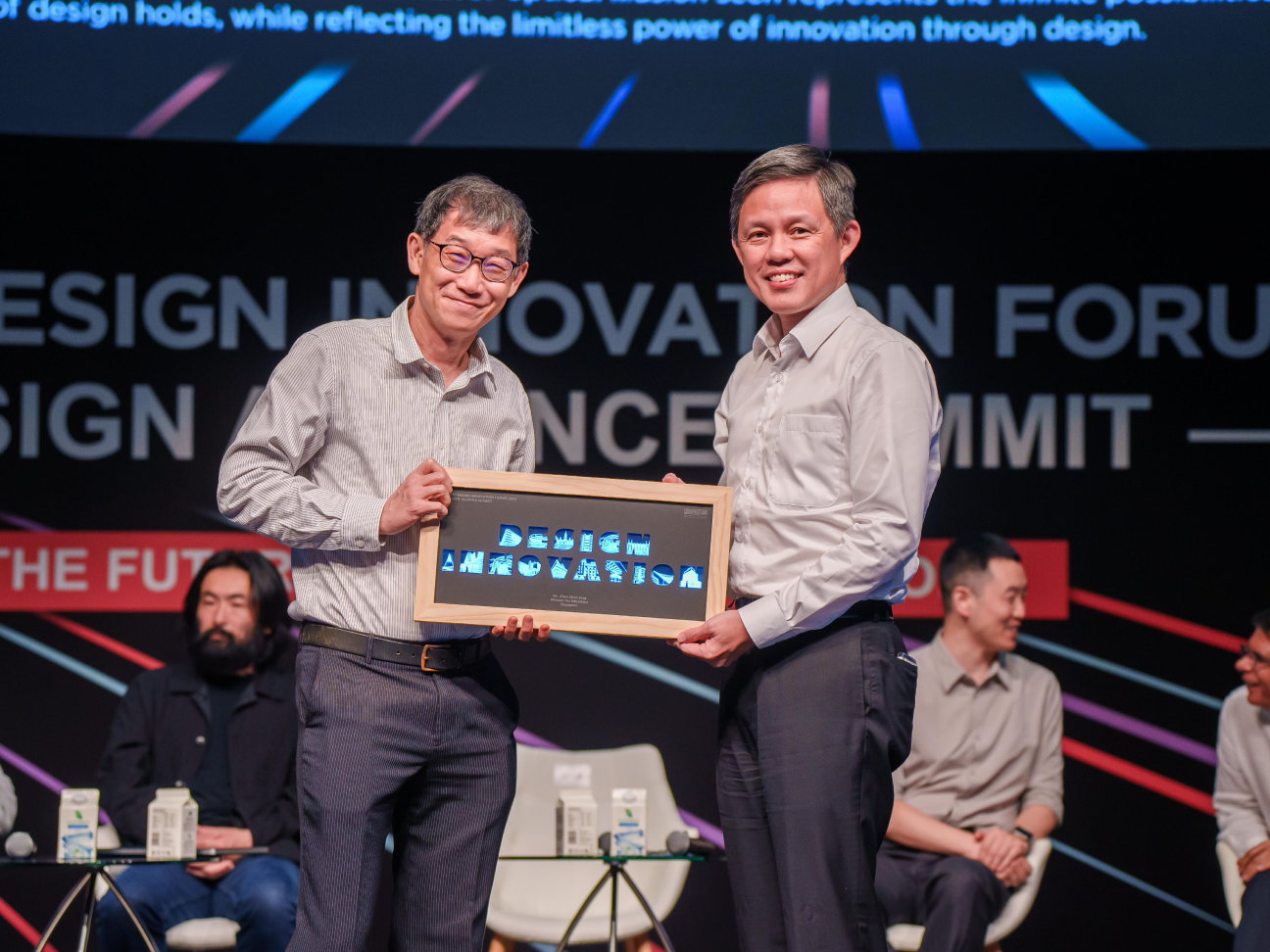Events

Master of Architecture information session for intake 2025
The SUTD’s Master of Architecture (MArch) programme offers a future-forward professional degree programme, highlighting design and research for sustainability and the digital transformation of the architectural profession. The programme launches the careers of leaders in architecture by emphasizing independent critical thinking in a thesis project, supported by close collaborations with faculty on cutting-edge research.


Towards intelligent analytics for smarter animal behavioural analysis
ISTD PhD Oral Defence Seminar by Ong Kian Eng – Understanding and analysing animal behaviours is crucial for gaining profound insights into the health, needs, and overall well-being of the animal. This involves measuring and monitoring factors such as size, growth, poses, and actions. The analysis of animal behaviour holds significant importance in a wide range of domains and industries, such as livestock farming, veterinary sciences, scientific research, ecological and conservation studies.

Modern portfolio construction with advanced deep learning models
ISTD PhD Oral Defence Seminar by Joel Ong – We explore the modern application of deep learning techniques in portfolio construction, presenting innovative methodologies that significantly enhance traditional investment strategies. Central to this research are three advanced frameworks that leverage deep learning to optimize financial portfolios.
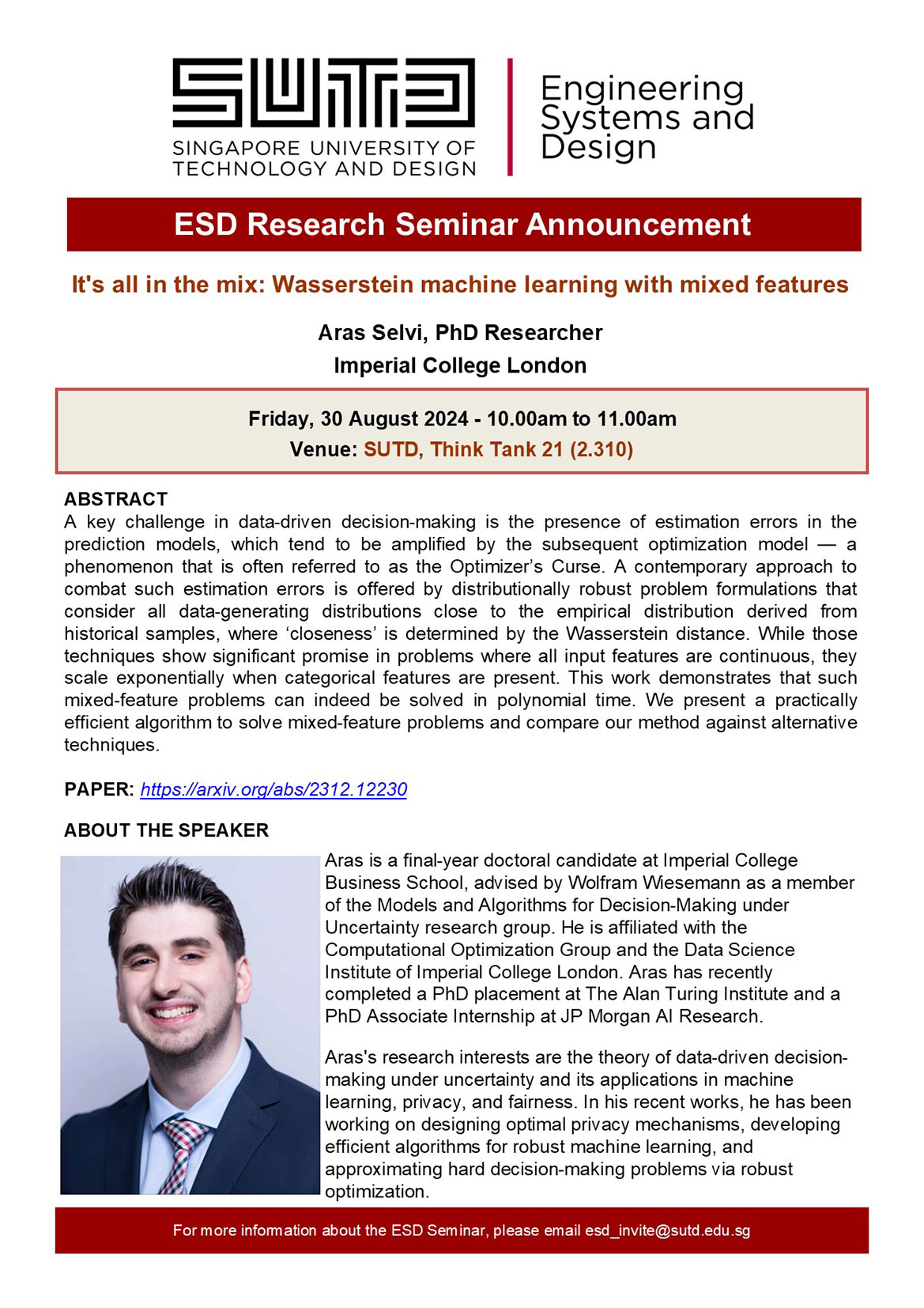
It's all in the mix: Wasserstein machine learning with mixed features
It’s all in the mix: Wasserstein machine learning with mixed features

Sparsity in text-to-speech
ISTD PhD Oral Defence Seminar by Perry Lam – Neural networks are known to be over-parametrised and sparse models have been shown to perform as well as dense models over a range of image and language processing tasks. However, while compact representations and model compression methods have been applied to speech tasks, sparsification techniques have rarely been used on text-to-speech (TTS) models. We seek to characterise the impact of selected sparse techniques on the performance and model complexity.
Towards data efficient, reliable and flexible 3D digital human modelling
ISTD PhD Oral Defense Seminar by Gong Jia – 3D digital human has been widely used in fields like virtual reality, fashion, and film/game production. Traditionally, creating and animating digital humans requires skilled engineers and expensive equipment, typically accessible only to large companies. Thus, developing deep learning tools to democratize the creation and animation of digital humans is urgently needed.
Overcoming the limitations of autoregressive and non-autoregressive neural models
ISTD PhD Oral Defense Seminar by Haoran Li – Language models are critical to the advancement of natural language processing and general artificial intelligence. In this thesis, we aim to address the limitations of language models, particularly focusing on the exposure bias in Autoregressive (AR) models and the label bias in Non-Autoregressive (NAR) models.
Towards effective, robust, and continual multi-modal learning
ISTD PhD Oral Defense Seminar by Li Xu – In the ever-evolving field of artificial intelligence (AI), deep learning has emerged as a pivotal technique driving remarkable advancements across various domains. Among its many branches, multi-modal learning stands out as a particularly significant approach, which involves integrating and processing information from multiple modalities of data, such as visual content and language information, to enhance the capabilities of AI systems.
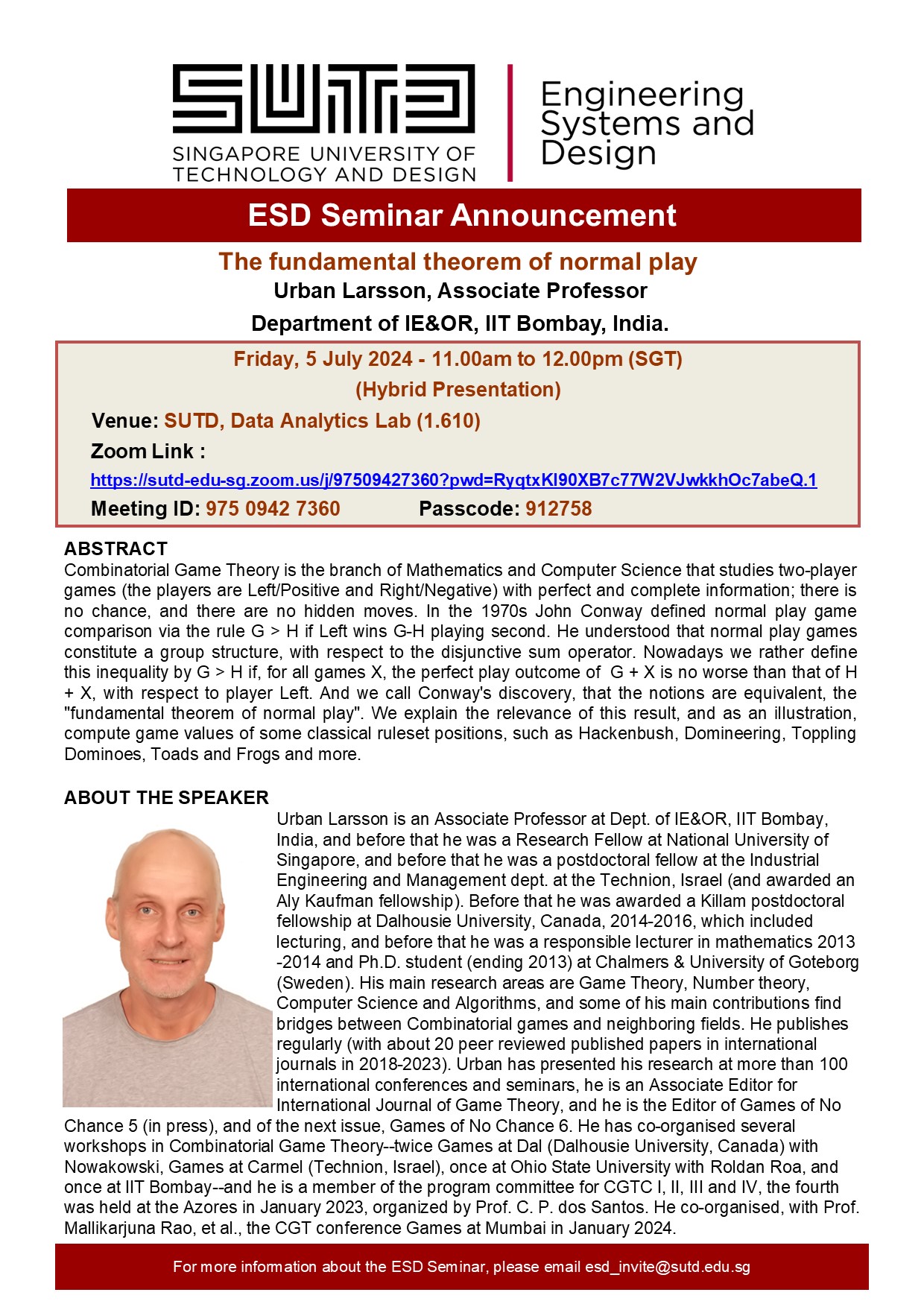
Urban Larsson (IIT Bombay, India) – The Fundamental Theorem of Normal Play
Urban Larsson (IIT Bombay, India) – The Fundamental Theorem of Normal Play

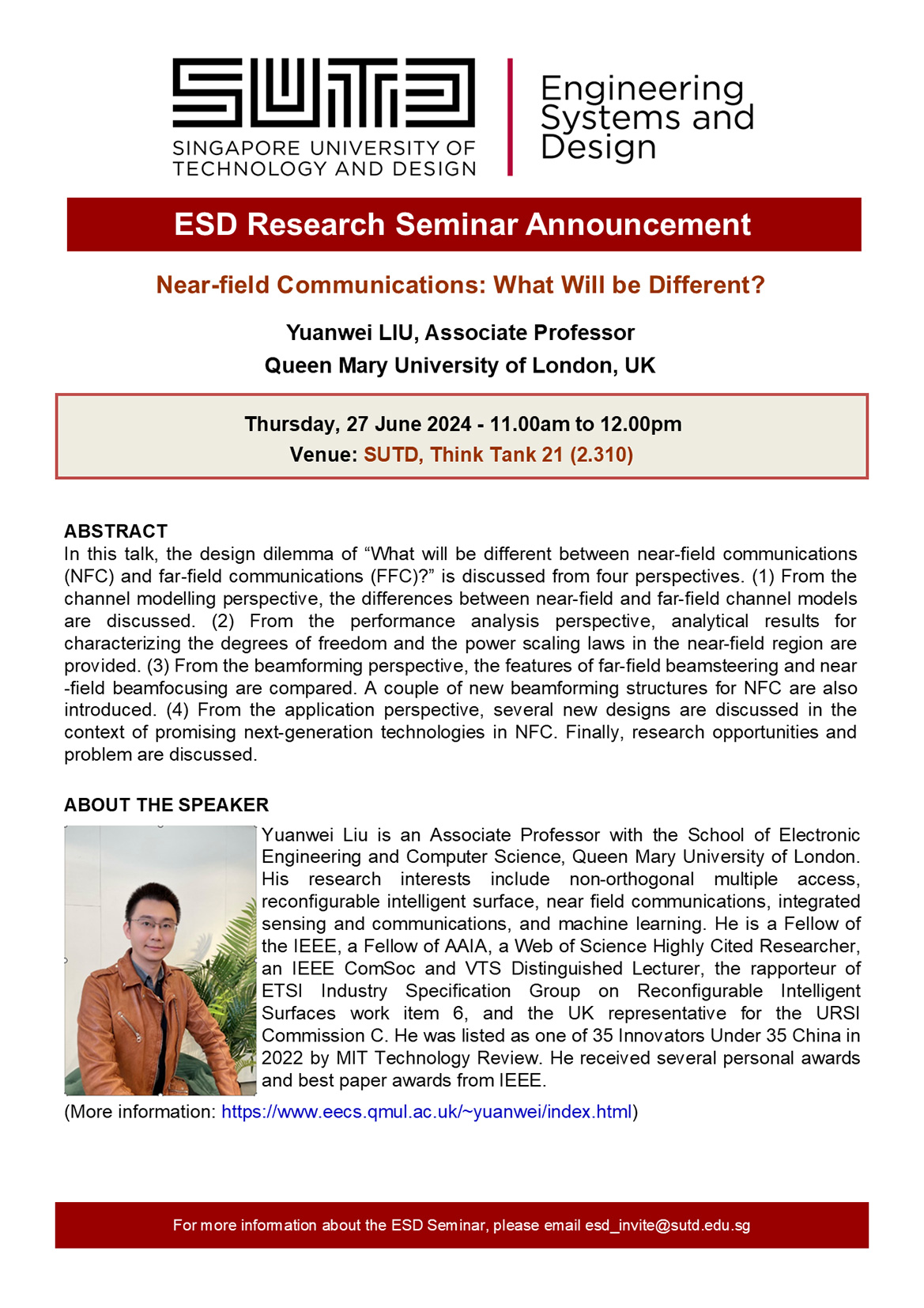
Yuanwei Liu (Queen Mary University of London) – Near-field Communications: What Will be Different?
Yuanwei Liu (Queen Mary University of London) – Near-field Communications: What Will be Different?



